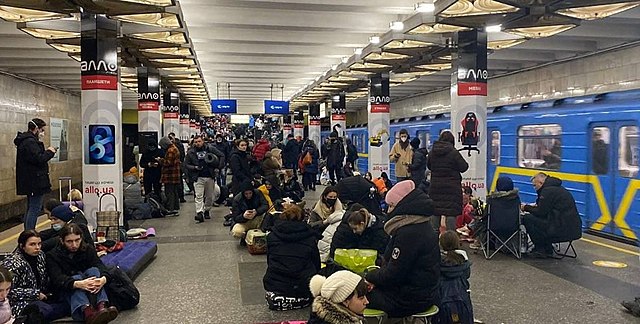Networks and Ukraine: How to Understand Demands for Glass

Ukranian civilians find shelter in a metro station during the Russian invasion.
Jonah Carlson - As winter approaches the war in Ukraine, civilians are slated to experience massive material shortages. One item in particular is in especially high demand: glass. Jeffrey Gettleman’s recent article explores why it’s so difficult to get right now.
To understand Ukraine’s glass problems, one must understand networks. Networks are a group of nodes that are connected together, with certain items – capital, commodities, people, etc. – moving between them. In the case of glass, there are two major types of nodes: glass producers and glass consumers. A glass factory in the country’s east, a crucial node of glass production, was destroyed by rebels in the years before the invasion. Leaving the country with few internal sources of glass, Gettleman writes that “now almost all of Ukraine’s glass… is imported, much of it from pricier European markets.” Additionally, the Russian blockade of Ukraine’s southern ports and its consistent disruption of supply chains all aim to undercut Ukrainian networks and force the country’s capitulation. Despite Russian influence, some networks continue to have a positive effect on Ukraine. Gettleman identifies a French organization called ACTED, based in Paris, as helping citizens in Chernihiv afford new windows. This connection is a network of aid that connects both ends of Europe.
To better understand the situation of Ukraine’s networks, one also needs to understand boundaries. Russia’s pressure on supply lines accentuates state boundaries in the region but fails to fully disrupt the region’s networks. While state boundaries are well defined, networks cross these boundaries and produce international connections. Networks of labor, aid and capital cover Europe despite both state and supranational boundaries that separate Ukraine from the rest of the continent.

